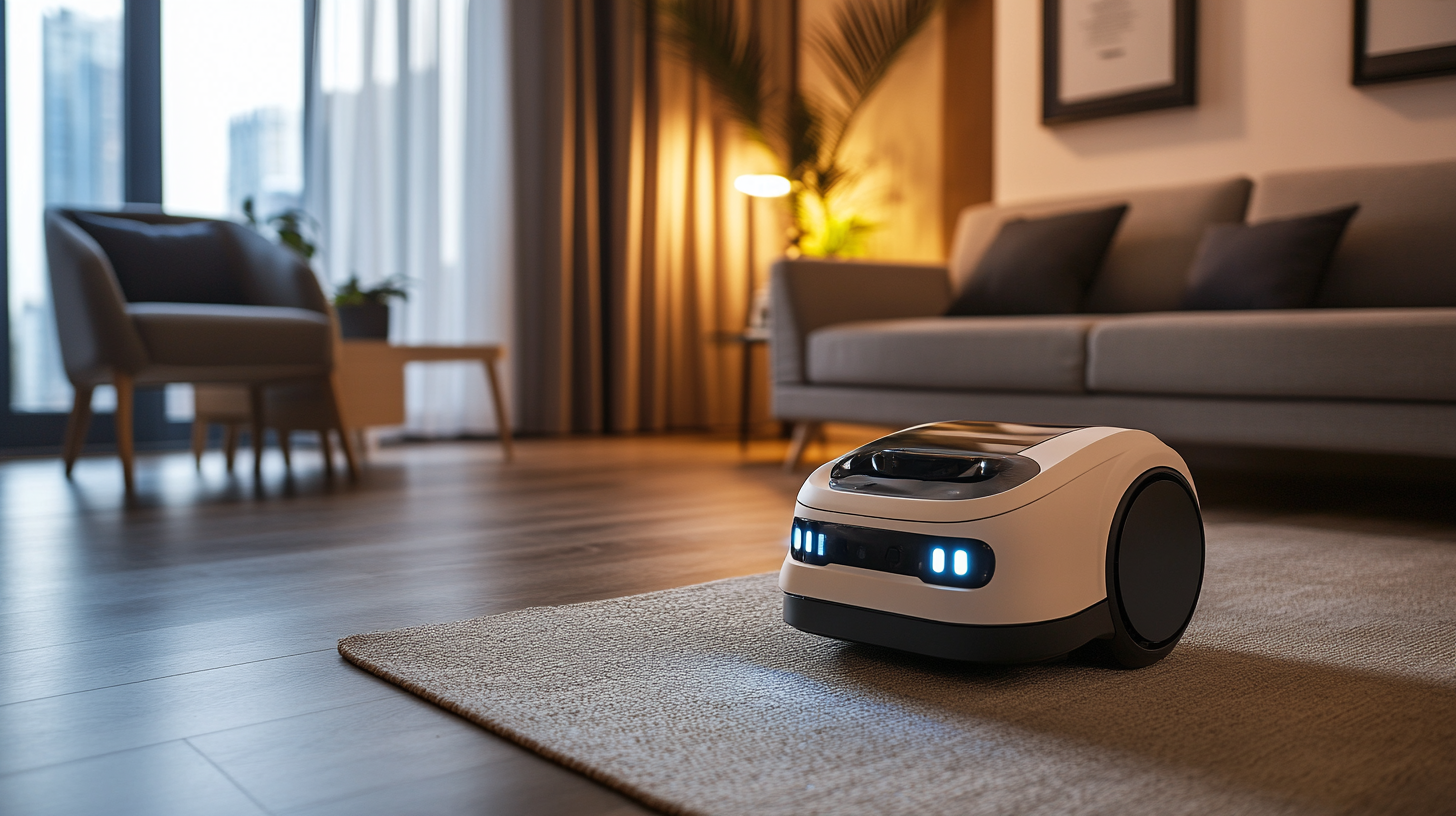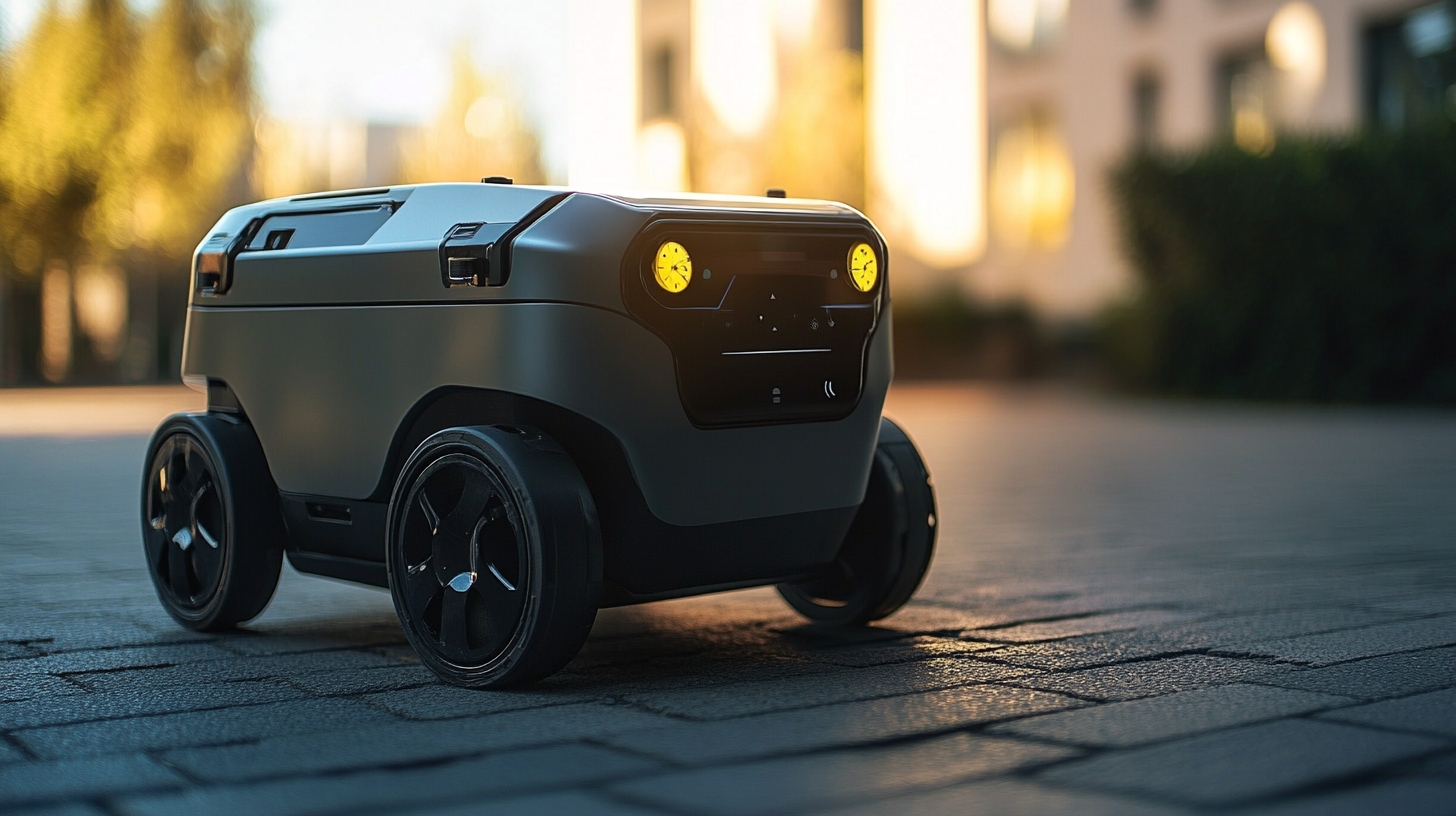How to Choose the Best Remote Control Robot for Your Business Needs
The demand for automation and robotics in various industries has surged, leading businesses to explore innovative solutions to improve efficiency and reduce operational costs. According to a report by McKinsey, the adoption of automation technologies, including Remote Control Robots, is expected to increase productivity by up to 30% in the manufacturing sector by 2030. As companies strive to stay competitive in an evolving market, integrating Remote Control Robots into their operations is becoming not just a trend, but a necessity. These advanced machines can facilitate tasks ranging from assembly to logistics, freeing up human resources for more strategic roles.
However, selecting the right Remote Control Robot tailored to specific business needs can be a daunting task. With various models and capabilities available, it's critical for decision-makers to understand their operational requirements and how different robots can meet those needs. Data from Statista indicates that the global market for remote-controlled and autonomous robots is projected to grow from $12.3 billion in 2021 to roughly $27.4 billion by 2026, highlighting the increasing reliance on robotic solutions. In this blog, we will explore key considerations for choosing the best Remote Control Robot that aligns with your organizational goals, ensuring a successful integration into your business processes.

Identifying Key Business Requirements for Remote Control Robots
When selecting a remote control robot for your business needs, it's essential to start by identifying key business requirements. According to a report by MarketsandMarkets, the global market for robotics is projected to grow from $45 billion in 2020 to $73 billion by 2025, indicating a significant trend that businesses cannot afford to overlook. Understanding your specific operational needs—whether it's for warehouse automation, surveillance, or customer service—will help streamline your decision-making process.
One crucial factor to consider is the robot's functionality. For instance, if your business involves high-precision tasks, look for robots with advanced sensors and AI capabilities. A survey conducted by RoboGlobal found that nearly 73% of businesses are currently exploring or implementing robots specifically designed for enhanced precision and efficiency. Additionally, evaluating the compatibility of the robot with existing software systems can significantly impact integration ease, which is vital for seamless operations.
Another core requirement is the robot's scalability. As operations expand, the robotic solutions should adapt accordingly. Data from a McKinsey report indicates that businesses that employ scalable robotic systems experience productivity increases of up to 30%. Thus, selecting a robot that can evolve with your business needs will not only save costs in the long run but also enhance overall productivity. Understanding these key requirements will enable businesses to make informed choices when investing in remote control robots.

Evaluating Different Types of Remote Control Robots
When it comes to selecting the best remote control robot for your business, understanding the various types available is essential for making an informed decision. Different applications necessitate unique functionalities, making it vital to evaluate the capabilities of each type. For instance, industrial robots are designed for heavy lifting and precision tasks in manufacturing environments. They excel in performing repetitive functions with high efficiency, making them an ideal choice for production lines.
On the other hand, service robots cater to a different market segment, focusing on tasks such as security surveillance, customer service, or even cleaning. These robots are equipped with sensors and cameras to navigate and interact within their environments, offering valuable support for customer-facing businesses. When choosing a service robot, consider its mobility features and adaptability to various situations, as these traits can significantly impact its effectiveness in your operations.
Educational and hobbyist robots also play a role in specific business contexts, particularly in training settings or for research purposes. These units often come with programmable elements, allowing users to customize their functions and encourage innovation. Understanding the target audience and intended use cases will guide your selection process, ensuring that you choose a remote control robot that aligns with your business goals and enhances operational efficiency.

Assessing Budget Considerations and Cost-Effectiveness
When selecting the best remote control robot for your business, one crucial aspect to consider is the budget. Recent discussions surrounding the strict enforcement of budget regulations, particularly highlighted by the “总开关” principle in China's budget law, emphasize that all expenditures must align with approved budgets. This approach not only ensures accountability but also compels organizations to be prudent and strategic in their investment choices. It's vital to evaluate the financial implications of acquiring remote control robots, while ensuring that your spending adheres to established budget guidelines.
Cost-effectiveness plays a critical role in making informed decisions about technology purchases. As the demands on businesses evolve, particularly in areas like cybersecurity, the need for efficient investments has never been more paramount. The challenges faced by companies in balancing budget constraints with the necessity for advanced operational support, such as in cybersecurity, serve as a reminder of the importance of targeted assessments. By identifying the true costs associated with remote control robots, businesses can better gauge their value proposition and overall return on investment, ultimately allowing for more sustainable and strategic growth.

Understanding Technical Features and Compatibility
When selecting a remote control robot for business applications, understanding technical features and compatibility is paramount. Notably, the global market for remote control robots is projected to reach $44.7 billion by 2025, growing at a CAGR of 26.5%, according to a recent report by MarketsandMarkets. This growth highlights the increasing reliance on robots for efficiency in various sectors, including manufacturing, logistics, and healthcare.
One significant technical feature to consider is the robot’s control range and communication protocol. Modern robots often utilize Wi-Fi and Bluetooth for remote control, which can affect operational efficiency depending on the layout of your business premises. A study published in the Journal of Robotics and Automation reveals that businesses utilizing robots with robust communication systems reported a 30% increase in productivity, which emphasizes the need for proper compatibility with existing systems.
Moreover, payload capacity and mobility capabilities play critical roles in selecting the right robot. For instance, in warehouse settings, robots that can navigate autonomously and carry substantial loads can optimize logistics workflows. According to a report by the International Federation of Robotics, incorporating autonomous mobile robots (AMRs) in warehouses can lead to a 20-30% reduction in operational costs and delivery times. Ensuring that the chosen remote control robot meets your specific business requirements in terms of these technical features is essential for maximizing investment returns.
Exploring Customer Support and Warranty Options
When selecting a remote control robot for your business, understanding the customer support and warranty options is pivotal. According to a recent study by IBISWorld, businesses that invest in robotics often overlook ongoing support and maintenance, which can lead to downtime and increased costs. In fact, companies that engage with robust customer support solutions experience a 20% reduction in operational disruptions compared to those that do not prioritize these services.
Furthermore, warranty options play a crucial role in the overall ownership experience of commercial robots. According to the International Federation of Robotics (IFR), nearly 30% of businesses reported encountering issues within the first two years of operation, emphasizing the need for comprehensive warranty coverage. An extended warranty can mitigate unexpected repair costs and ensure that any defects are addressed promptly. For instance, companies like Boston Dynamics and DJI offer warranties that extend up to five years, which gives businesses peace of mind and assures continued support.
In addition, the quality of customer service can significantly influence the performance of the remote control robot. A survey conducted by Statista highlights that 75% of consumers value accessible and responsive customer support when dealing with technical products. Firms that provide easy access to service personnel, online resources, and training modules tend to see a higher satisfaction rate among their users. Therefore, when evaluating potential robots for your operations, scrutinizing the customer support framework and warranty offerings is essential to ensure long-term success and reliability.













